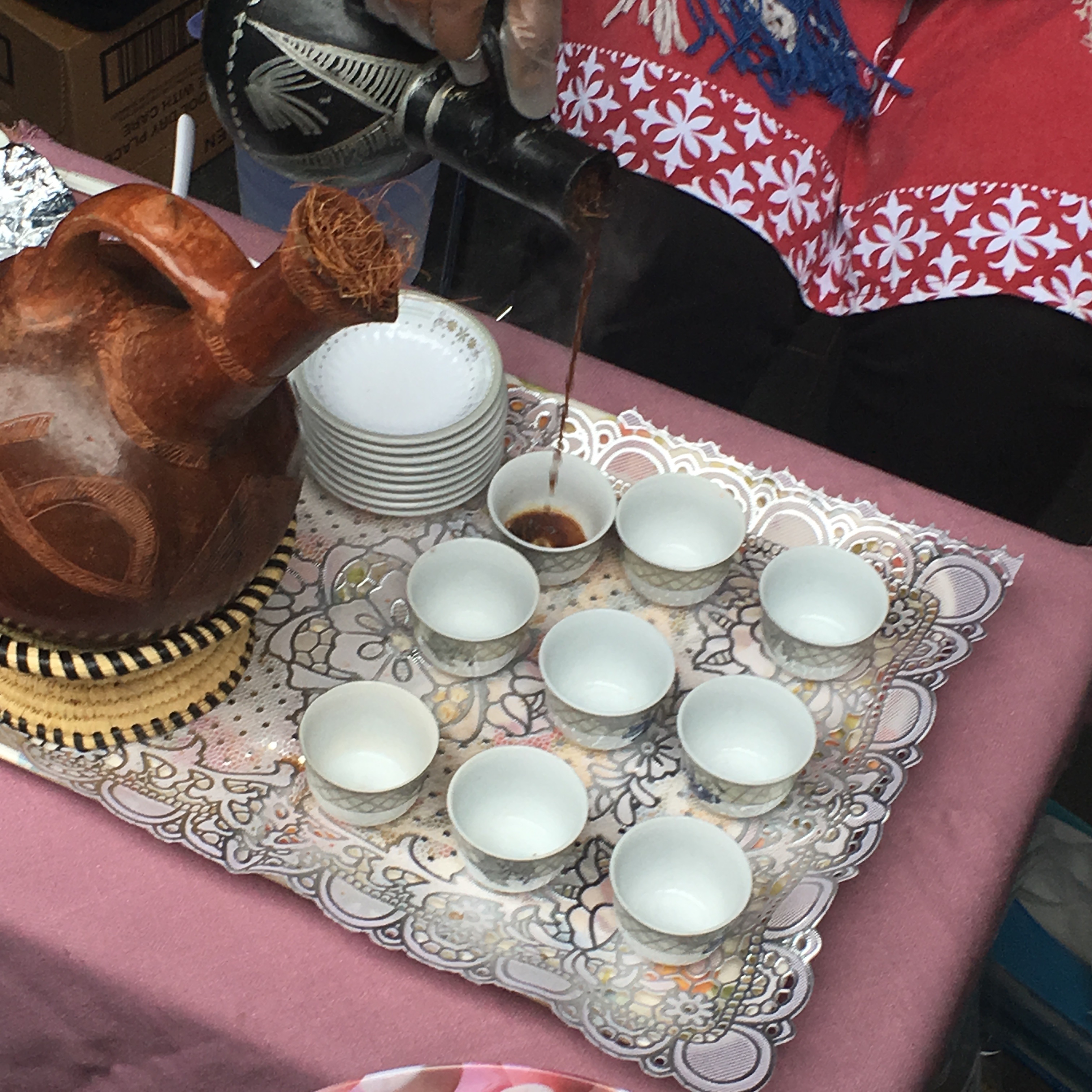Former refugees show Kiwis a different coffee culture
• November 11, 2016

Zahra Ibrahim, a former Eritrean refugee, sells coffee to central Aucklanders and speaks about her traditions. Photo: Laura Tupou
Refugees from Eritrea sold their traditional coffee in central Auckland on Friday to inform Kiwis of how they prepare the popular drink.
Zahra Ibrahim, 28, is an international studies student who came to New Zealand as a refugee five years ago. She was serving coffee outside the central library as part of an Auckland Council-organised event called A Day in Their Shoes: The Refugee Experience, on Friday.
She explained that as in New Zealand, coffee is very popular in the West African country, but there are some different traditions around how it is consumed.
“We do it on every occasion, every day," said Ms Ibrahim. "It brings family, friends and loved ones together and we serve it with popcorn or sweets.
"I’ve never met anyone that drinks coffee and said Eritrean coffee is not good. It’s strong, it’s like a short black.”
People drink coffee with ground ginger in the lowland areas, and without ginger in the highlands and in the south, Ms Ibrahim said.
Coffee is traditionally drunk from small cups and is served in rounds of three. “My grandma used to say if you drink the first cup you have to drink the second one, and if you drink the second one you have to drink the third one. If you start it, you have to finish it.”
Traditional Eritrean coffee with ginger. Photo: Laura Tupou
Norman Brocas, a machine service person and regular latte drinker, tried some of the coffee and found it to be very “real”.
“The ginger doesn’t overpower the coffee either. The two do go together quite well, which is interesting because I wouldn’t have thought ginger and coffee would,” said Mr Brocas.
He had stumbled upon the refugee event while en route to the post office.
“It‘s nice to have a bit of ambience. You hear all these stories about migration but you never personally see or meet a lot of the diversity, it sort of slips through your fingers.”
The food stalls were organised by the WISE Collective Project, an organisation supporting women from a refugee background.
Nanmyat Htwe, 40, works for WISE part-time while studying in her final year towards an accounting degree.
She is a former refugee herself, having come to New Zealand from the Burmese and Thai border in 2012.
Ms Htwe believes the organisation’s work is vital, and is proven by its membership exceeding 200 people.
“I think it’s very important because New Zealand accepts refugees every year so they have to know how refugee people cooperate with New Zealand society.
"It’s very important because they arrive [in New Zealand] and they [need to] learn everything and then they can do it by themselves.”
The event had food stalls, activities for children, and music playing in the concourse of the library.









